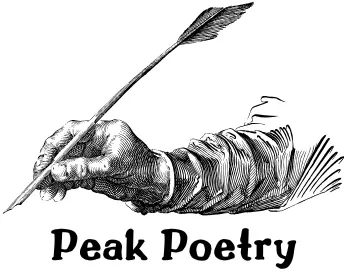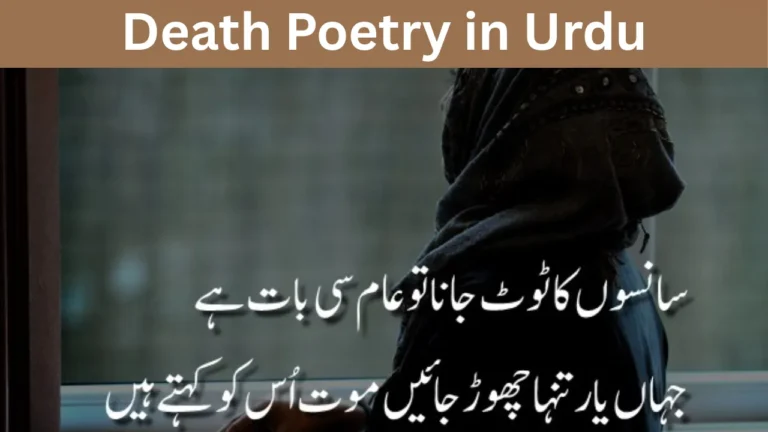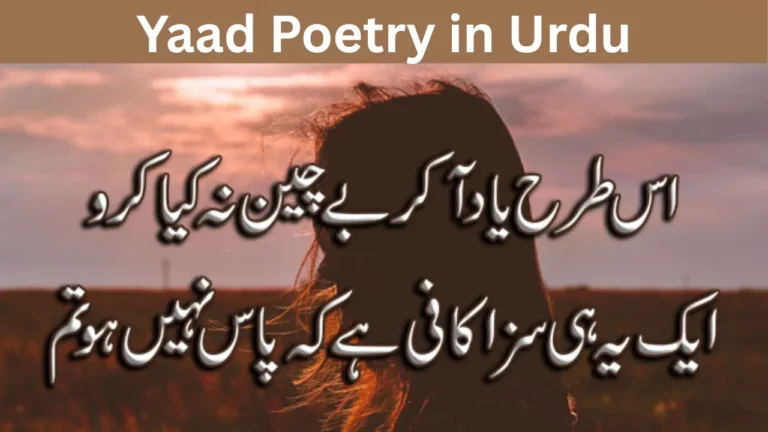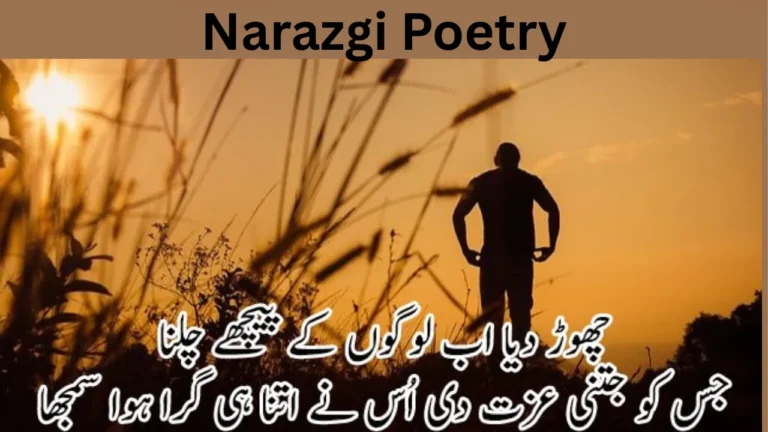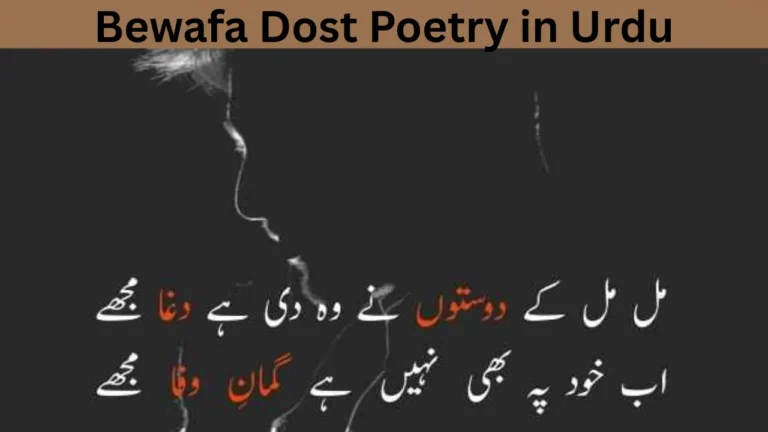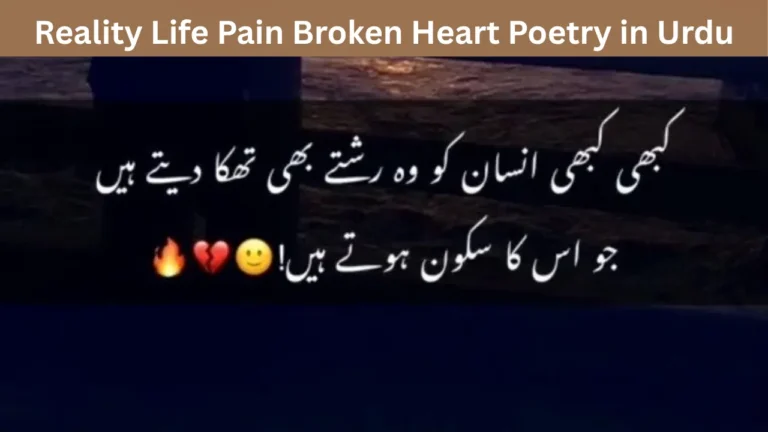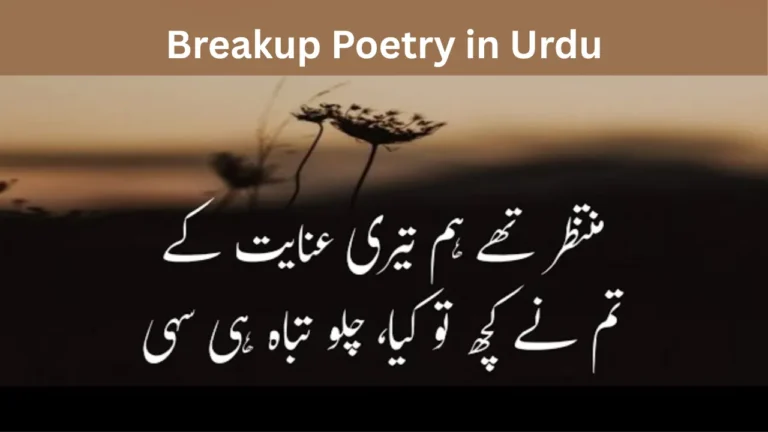Jaun Elia Sad Poetry The Timeless Voice of Heartbreak and Depth
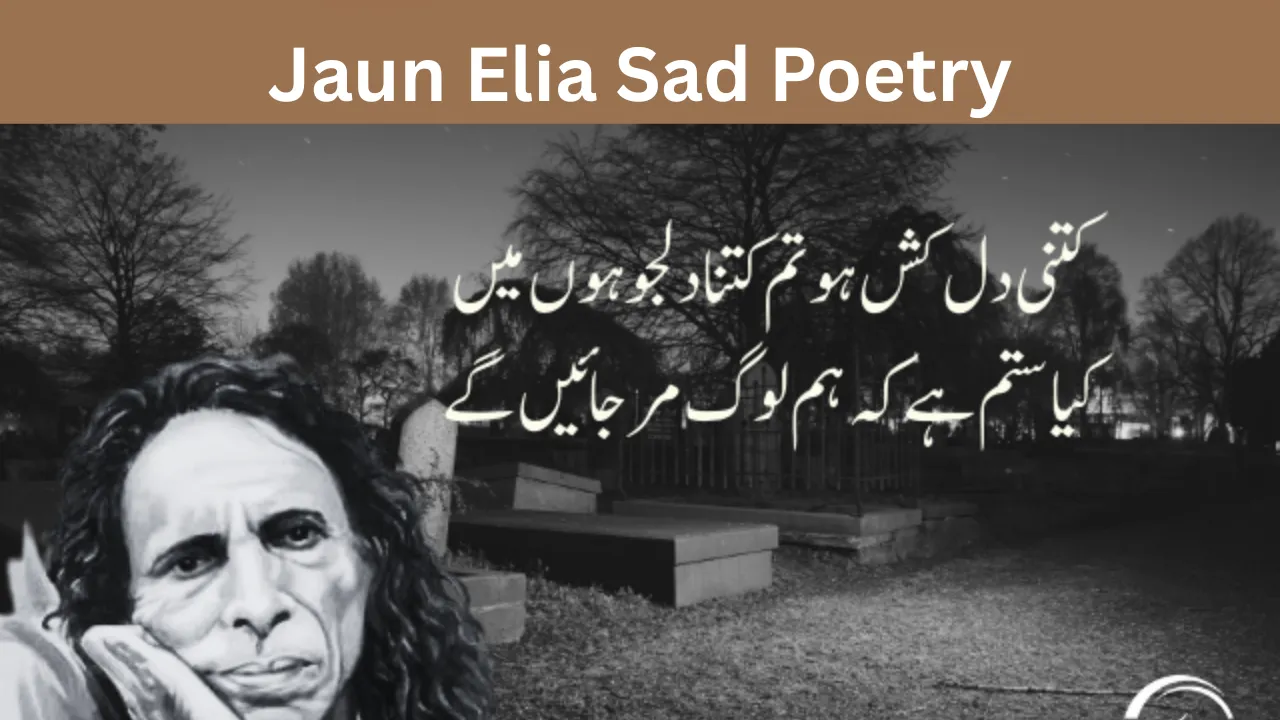
In the world of Urdu literature, jaun elia sad poetry holds a place like no other. His words cut through hearts, leaving behind a quiet ache. Born in 1931 in Amroha, India, and later moving to Pakistan, Jaun Elia’s life was filled with emotional complexity. He transformed that pain into verses that continue to echo across generations.
Before we dive deep into his soul-stirring lines, let’s also remember that Urdu poetry doesn’t exist alone. It thrives alongside Punjabi Poetry The Soulful Voice of Punjab, weaving cultures and languages into a larger poetic universe.
Now, let’s explore some of Jaun Elia’s most painful, beautiful, and unforgettable sad poems.
Who Was Jaun Elia?
Born on December 14, 1931, in Amroha, India, Jaun was raised in a scholarly family. His father was an astrologer and writer. His brothers were poets. He moved to Pakistan in 1957 after Partition.
But Jaun never truly “settled”—neither in Karachi, nor in the world. His mind lived in chaos, and his heart in silence. His poems reflect that unrest.
Jaun Elia passed away in 2002, but his poetry continues to find new generations of readers and listeners, proving that sadness, when worded right, is timeless.
I’m Not Like Everyone: Poetry of a Strange Soul
Jaun Elia knew he was different. He accepted his brokenness and wore it like armor.
Maiñ bhī bahut ajīb huūñ, itnā ajīb huūñ ki bas
Ḳhud ko tabāh kar liyā, aur malāl bhī nahīñ.
Maiñ kisi aur zamāne kā shakhs hūñ.
Vo bhī kyā din the jab har dukh achhā lagtā thā.
Jitnā maiñ dikhāī detā hūñ, utnā huūñ nahīñ.
Maiñ sāre raaste chhod ke terī taraf chala āyā.
Ye jo maiñ muskurātā hūñ, sab jhoṭh hai.
Maiñ kab ka mar chukā huūñ, sirf jī rahā hūñ.
Log mere dil kī baat samajh hi nahīñ paate.
Maiñ khud se bhī itnā ajnabī huūñ.
Har pal apnī wujūd se door hotā chala gayā.
Kya kabhī khud se bhī milā hai koi?
jaun elia sad poetry shows us how self-awareness can be a curse.
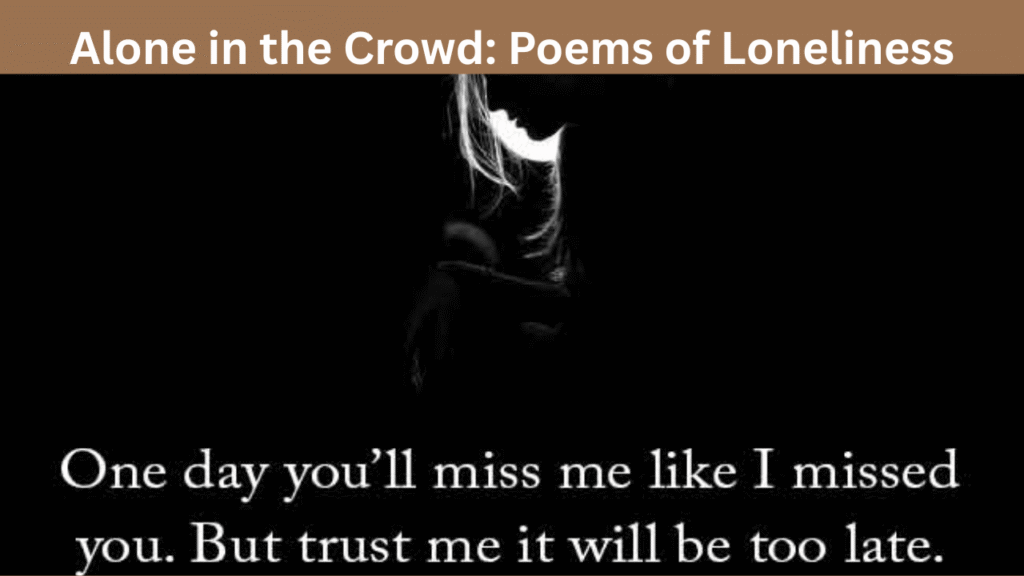
Alone in the Crowd: Poems of Loneliness
Even in a crowd, Jaun was alone. His poetry mirrors that deep silence.
Jo guzārī na ja sakī ham se, ham ne vo zindagī guzārī hai.
Tanhaā rahā, magar muskurāte rahā, yeh silsila thā.
Tere bin har mod suntā huā sā lagā.
Bheed meñ bhī akelā thā, log the par apne nahīñ.
Tanhaā raateñ mere sāth soyīñ nahīñ.
Dil ke shor ko kabhī kisī ne nahīñ sunā.
Kāmiyābī se zyada tanhāī mili.
Zindagī meñ jitne loġ the, sab bewajah the.
Kisī ne samjhā nahīñ ki main sirf bolne se darta thā.
Waqt guzartā gayā, lekin maiñ ruk gayā.
Aansū khud ko bhi hairān karne lage.
Mere sāth chalte chalte log raaste badalte gaye.
In jaun elia sad poetry, solitude becomes the only companion.
The Lover Who Waited: Poetry of Lost Love
Love came, stayed, and left without closure. His verses mourn love’s absence.
Tū nahīñ to zindagī meñ aur kyā rah jā.egā?
Vo chali gayī, lekin har saans meñ reh gayī.
Jinheñ chāhā, vo samajh hi nahīñ sake.
Aankhoñ meñ aansū the, vo samjhā muskurā rahā hūñ.
Tere bin subah bhī shaam lagī.
Rāste tere ghar ke āj bhī rāz rakhte haiñ.
Woh waqt jab tū sāth thā, āj bhi sāñsoñ meñ hai.
Tū jo chāhe to sab kuch ho, lekin tū nahīñ hai.
Kya sach meñ vo pyaar thā, ya sirf mere liye thā?
Tum bin kuch bhī pūrā nahīñ lagā.
Pyaar kar ke bhī akelā pad gayā.
Yaadon kā bojh, mohabbat kā sūnāpan.
jaun elia sad poetry makes you feel every goodbye like it was your own.
Loneliness in Crowds
“Bheed meñ bhi kisī ne pehchānā nahīñ.”
“Tanhāī ne kān meñ sirf chuppī bolī.”
“Mausam guzarte rahe, maiñ rukā rahā.”
“Rishton ne sirf waqt liyā, kuchh nahīñ diyā.”
“Kya kisi ne kabhi khud ko khokar jeetā hai?”
“Tū nahīñ, to har jagah sūnā hai.”
“Mujhe sab kuchh milā, siwā tere.”
“Ek waqt thā jab sab mere the.”
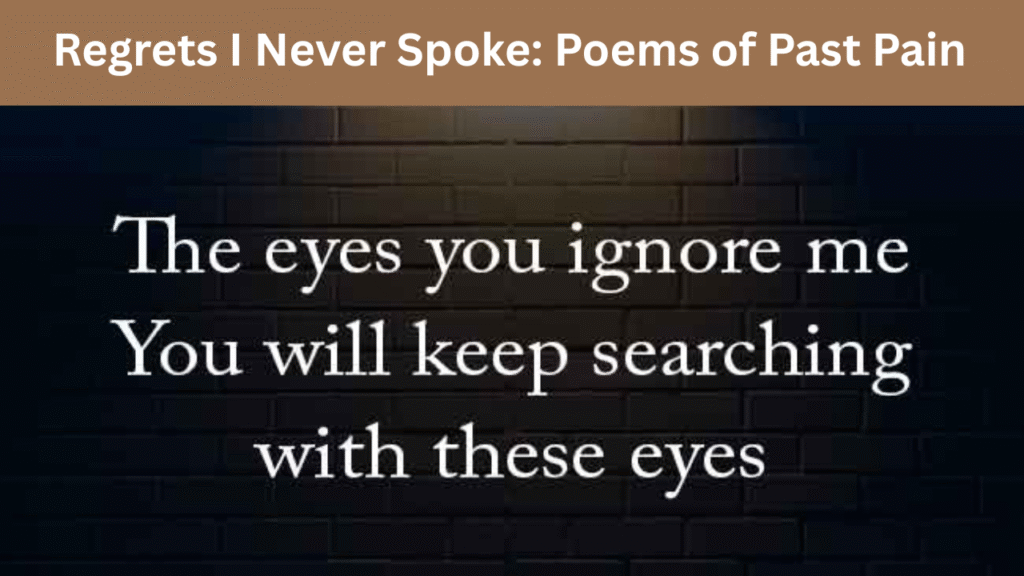
Regrets I Never Spoke: Poems of Past Pain
Regret lives in silence. Jaun let that silence speak for him.
Ham āge badh gaye, vo ruke the kal.
Kaash kuchh aur kahā hotā, shāyad kahānī badal jaatī.
Kaash ek baar rok lētī, chali jaane se pehle.
Pachtāwe se bhare patte, dil kī kitāb ban gaye.
Mausam badal gaye, par vo pal wahi rahe.
Mujhe sirf yeh dard hai ki samay kabhi rūkā nahīñ.
Aansu kuchh kehne se pehle tapak gaye.
Vo to guzar gaya, lekin dard chhoṛ gaya.
Jab tak samjhtā, tab tak der ho chukī thī.
Khaamoshi se galtiyāñ kartā gayā.
Zindagī sikhātī gayī, maiñ samajhtā gayā.
Every verse in jaun elia sad poetry feels like a missed heartbeat.
The Bitter Truth: Poems of Cold Realization
Jaun Elia never sugar-coated love. His truth was bitter—but real.
Waqt lagā tujhe bhūlne meñ, ab tujhe yaad bhī nahīñ kartā.
Pyaar jhoṭh thā, ya sach thā, yeh sochnā bhī chhoṛ diyā.
Sach to yeh hai ke tum kabhī mere the hi nahīñ.
Tū sirf ek vahem thī jo sach lagā.
Mohabbat kā anjaam sirf tanhāī hai.
Dil todnā bhi ek kalā hai, jo tumhe bhī ātī hai.
Zindagī se badtar sach tum thī.
Mujhe sach bolne ki saza milī hai.
Aksar vo log sab kuchh bhūl jaate haiñ.
Mujh jaise log aksar bewajah toot jaate haiñ.
Jinheñ sach chāhiye thā, unhone jhoṭh pasand kiyā.
Mausam badal gaye, lekin sach wahi rahā.
Such raw truth is the signature of jaun elia sad poetry.
Dying Without Dying: His Final Words
He wrote about death like it was an old friend. But he never feared it—he welcomed it.
Maiñ zindā hūñ, par andar se mar chukā hūñ.
Zindagī jī nahīñ, sirf bardāsht kī hai.
Maut ek khāmosh mehmaan hai, har roz miltī hai.
Tanhāī maut se zyada khatarnāk hai.
Jīte ji maut kā ehsās hotā gayā.
Kab tak khud se jīūñgā, ab bas hotā nahīñ.
Maiñ jī rahā hūñ, lekin kis lie?
Har roz ek nayi maut jī lētā hūñ.
Rūh thak chukī hai, badan to pehle hī chhūṭ chukā.
Mujhe maut se mohabbat ho gaī hai.
Zindagī kab khatam huyī, mujhe yaad nahīñ.
Kabhi to khatam hogī yeh chuppī.
Even death was poetic in jaun elia sad poetry.
Midway through Jaun’s emotional journey, we remember another form of eternal emotion — Dosti Poetry The Soulful Bond of Friendship in Verses. Friendships also carry silence, betrayal, and unsaid words, just like love.
Why His Poetry Still Hurts (In a Good Way)
Because jaun elia sad poetry doesn’t hide behind beauty. It faces the pain, calls it by name, and sits with it.
His poems validate your deepest fears:
- “Is this love only for me?”
- “Why am I always alone?”
- “Do I matter to anyone?”
For those who’ve loved, lost, or simply wandered, Jaun feels like home.
Final Thoughts
jaun elia sad poetry is more than just rhyme. It’s a mirror to sorrow, a diary of a broken soul. He taught us that it’s okay to feel, to fall, and to never fully heal.
His verses don’t just speak—they breathe. And in every breath, they share pain.
Would you like a PDF of this full poetry blog or more curated Jaun Elia couplets on heartbreak, separation, or unspoken love? Just say the word.
